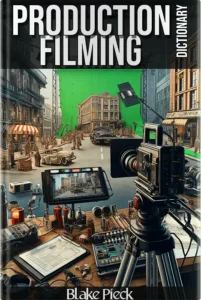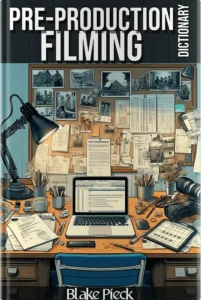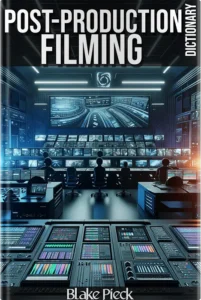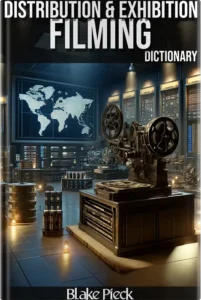Dystopia/Utopia Dictionary – eBook
1st Edition
For All, Writers, Science Fiction Fans
Available on App, eBook
Dictionary words 0
- E-Book Reader: Our books can be accessed on our Apps
- Special Deal: Buy 2, Get 1 Free. T&C Apply.
This dictionary serves as an essential guide to the contrasting visions of the future found in science fiction—dystopia and utopia. By exploring both the darker, oppressive futures shaped by social, political, and technological forces, and the idealized, often speculative societies built on harmony, progress, and equality, this dictionary offers insight into how these opposing concepts reflect humanity’s hopes and fears. Each entry in this dictionary provides a deeper understanding of the complex dynamics that define these speculative worlds.
This Science Fiction Dystopia/Utopia Dictionary offers a comprehensive exploration of the two opposite ends of speculative futures—where one imagines the collapse of societies under oppressive regimes or ecological disaster, and the other envisions flourishing, ideal societies where technology and nature work in harmony for the good of all.
Dystopia – Biopolitical Control – A dystopian scenario in which the state or powerful entities exercise control over individuals’ biological aspects, such as reproduction, genetics, or health. This can involve genetic manipulation, surveillance of reproductive choices, or the regulation of bodily autonomy, often leading to a loss of individual freedoms. In such societies, the state dictates who is allowed to exist, what traits are desirable, and even how people can live or die based on their biological characteristics.
Dystopia – Economic and Social Inequality – In these dystopian futures, vast divides between the wealthy elite and the impoverished masses are entrenched. Economic systems are skewed toward corporate power or oligarchies, often leaving the majority struggling for basic resources. Social inequality is institutionalized, with entire classes of people relegated to poverty, low-status jobs, or servitude, creating a rigid, stratified society where upward mobility is nearly impossible.
Dystopia – Environmental Collapse – A dystopian world marked by severe ecological destruction, including environmental degradation, climate change, and resource depletion. In these scenarios, the planet’s ecosystems are on the brink of collapse, leading to widespread famine, disease, and mass migration. Human survival is threatened by the consequences of unsustainable practices, and the remnants of society must struggle to adapt or perish in a world rendered inhospitable by their own actions.
Dystopia – Rebellion and Resistance – In dystopian settings, rebellion and resistance movements arise as a response to oppressive regimes, social inequalities, or technological domination. These groups or individuals fight against the forces of control, often engaging in acts of sabotage, subversion, or revolution. The themes of resistance in dystopia highlight the human spirit’s will to survive and reclaim autonomy, even in the face of overwhelming power.
Dystopia – Social and Cultural Decay – A dystopia where societal values, norms, and institutions have broken down or deteriorated, leading to moral decay and cultural stagnation. This can manifest in widespread apathy, a loss of identity, or the erosion of communal bonds. The collapse of education, art, and cultural traditions results in a disconnected, fragmented society where survival is prioritized over intellectual or emotional development.
Dystopia – Technological Control – A dystopian future where technology is used to oppress, manipulate, and control the population. From surveillance to mind control, technological tools are employed by the ruling class to limit freedom, suppress dissent, and manage every aspect of human life. This includes the use of AI, automation, and biotechnology to monitor behavior, track individuals, or even erase dissenting thoughts, creating a world where technology serves as both the means of control and the enforcer of obedience.
Dystopia – Totalitarian Regimes – Dystopian societies dominated by totalitarian governments that maintain absolute control over all aspects of life. These regimes use propaganda, surveillance, fear, and violence to enforce obedience and suppress any form of resistance. In these worlds, freedom of thought, speech, and action are virtually eliminated, with individuals existing only to serve the state or its leaders.
Utopia – Ecological Utopias – Ideal societies where the environment is in perfect harmony, and ecological sustainability is prioritized. These utopias focus on the restoration and preservation of nature, where humans live in balance with the planet, utilizing renewable resources and green technologies. The emphasis is on healing the Earth rather than exploiting it, with biodiversity flourishing, and ecological integrity at the heart of societal values.
Utopia – Ideal Societies – Utopian worlds where all aspects of life—political, social, economic, and cultural—are optimized for the well-being of all citizens. These societies are characterized by peace, equality, and cooperation, where the needs of the individual and the collective are both fulfilled. Often presented as a model for humanity’s potential, these utopias reflect our highest ideals of justice, harmony, and fulfillment.
Utopia – Political and Economic Utopias – Utopian futures where political and economic systems are designed to eliminate inequality, exploitation, and corruption. These societies may feature democratic governance, fair distribution of resources, and systems where all individuals have equal access to opportunities. The focus is on creating an egalitarian world where wealth, power, and resources are shared equitably, fostering a stable and prosperous society for all.
Utopia – Post-Scarcity Society – A utopian future where technological advancements and resource management have eliminated scarcity. In these societies, the basic needs of all individuals—food, shelter, healthcare—are provided for without the need for labor or money. People are free to pursue personal growth, creativity, and fulfillment, as all essential resources are abundant and accessible to everyone.
Utopia – Social and Cultural Flourishing – Utopian worlds where individuals and communities thrive socially and culturally. These societies are marked by flourishing arts, education, and vibrant cultural exchange. People live in harmony, respecting each other’s differences and building rich, diverse communities. The focus is on intellectual and emotional growth, fostering an environment where people can reach their full potential in both social and creative realms.
Utopia – Technological Utopias – Utopian societies powered by advanced technologies that improve the quality of life for all citizens. These societies use technology to eliminate disease, poverty, and hardship, ensuring that all people have access to the best resources and opportunities. These utopias are often built on the premise that technological progress can solve humanity’s greatest challenges, creating a world of abundance, equality, and opportunity.
Utopia – Transhumanist Utopias – Utopian visions where humanity has transcended its biological limitations through technology, such as mind uploading, genetic enhancement, or cybernetic augmentation. In these societies, humans may achieve immortality, enhanced intelligence, or superior physical capabilities, leading to a new era of peace and enlightenment. Transhumanist utopias often challenge the concepts of mortality and human nature, proposing that humanity can evolve beyond its current state through the integration of technology.
Only logged in customers who have purchased this product may write a review.























Reviews
There are no reviews yet.